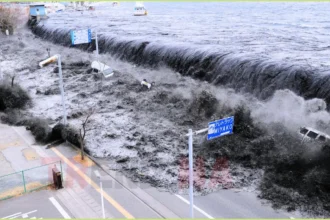UN Global Companies Profit from Gaza War, Profits Over People? UN Report Says Global Companies Fuel Gaza War for Money
UN Names Over 60 Companies Linked to Israel’s War Efforts.
A United Nations report has revealed that more than 60 companies are helping Israel carry out military operations and settlement activities in Gaza and the West Bank. These companies come from various industries, including arms manufacturing, construction, and advanced technology. The report says they are making profits from the ongoing war in Gaza, which has already killed tens of thousands and affected millions.
The report, written by Francesca Albanese—UN Special Rapporteur on the Occupied Palestinian Territories and an Italian human rights lawyer—will be officially presented to the 47-member UN Human Rights Council. She reviewed over 200 submissions from governments, activists, human rights groups, academics, and businesses before releasing the 27-page report on Monday.
“Genocide Is Lucrative,” Says UN Expert.
Albanese described Israel’s actions in Gaza as a “genocidal campaign” and accused international companies of gaining financially from it. She stated that while Palestinians in Gaza face destruction and violence, some businesses continue to profit. “This report shows why Israel’s genocide continues: because it is lucrative for many,” she wrote.
She accused these companies of being deeply connected to Israel’s military system and its system of apartheid. According to Albanese, their involvement isn’t just passive—they’re actively helping by providing tools, machines, and technology used in the attacks.
Weapons, Machines, and Surveillance Tech Involved.
The report lists several major companies, including Lockheed Martin, Caterpillar, and HD Hyundai. These companies, which manufacture heavy equipment and weapons, are said to have provided materials used to destroy Palestinian homes and infrastructure during Israeli military operations.
Lockheed Martin responded by saying its military sales are made between governments and that questions should be directed to the U.S. government. Meanwhile, Leonardo—an Italian defense company—was also listed for contributing to Israel’s military capability.

Big Tech Firms Accused of Supporting Surveillance.

Big Tech Firms Accused of Supporting Surveillance.
Some of the world’s biggest tech companies were also named. These include Alphabet (Google’s parent company), Amazon, Microsoft, IBM, and Palantir Technologies. The report claims that these companies provide digital tools that help with surveillance and intelligence, which are then used in Israeli military operations.
Alphabet defended its $1.2 billion cloud contract with the Israeli government, saying the services are not used for military or intelligence purposes. Palantir was noted for giving artificial intelligence tools to the Israeli military, though the report did not detail exactly how the tools were used.
Criticism From Israel and the United States.
Israel strongly rejected the report. Its mission in Geneva called it “legally groundless, defamatory, and a clear misuse of UN authority.” Israeli officials gave no further comment. The United States also criticized the report, asking UN Secretary-General António Guterres to remove Albanese from her role.
A U.S. spokesperson said the report is part of a campaign of economic warfare against global companies. They argued that failing to act against Albanese allows her to continue targeting businesses unfairly.
Conflict’s Human Cost: Over 56,000 Dead in Gaza.
Israel insists that its actions are taken in self-defense following the October 7, 2023, Hamas attack, which killed 1,200 Israelis and saw 251 hostages taken. However, the human toll in Gaza continues to grow. According to the Gaza Health Ministry, over 56,000 people have died since the conflict began.
Entire neighborhoods in Gaza have been flattened, and millions have been left without access to basic needs like water, power, and medical care. Despite repeated international calls for a ceasefire, the fighting has shown no signs of stopping.
What the Report Could Mean.
This report is expected to add pressure on companies and governments to rethink their involvement in the conflict. It also sheds light on how private businesses can play a major role in warfare, not just through weapons but through technology and infrastructure.
Albanese’s findings could be used by human rights groups and international legal bodies to push for accountability. Whether this report will bring actual changes remains to be seen, but it has already drawn global attention.








